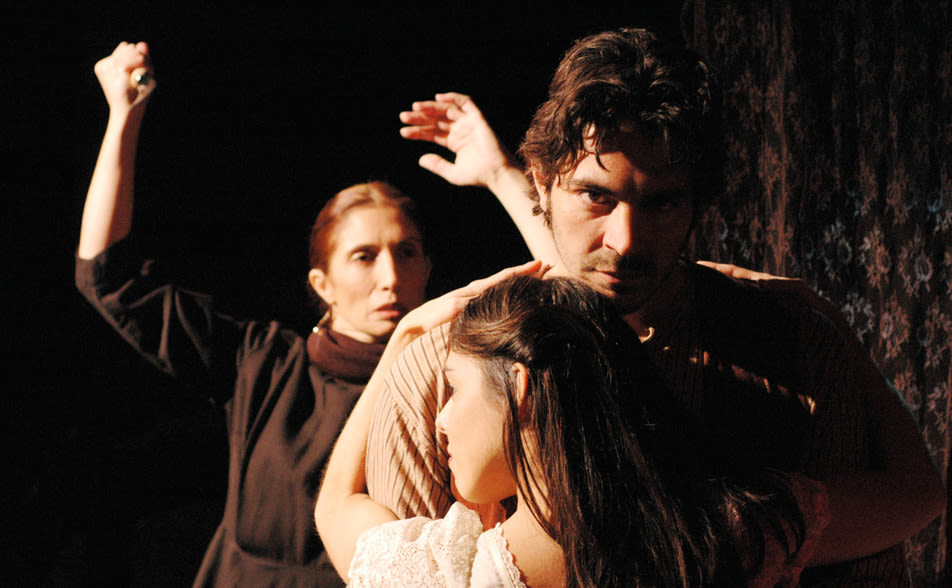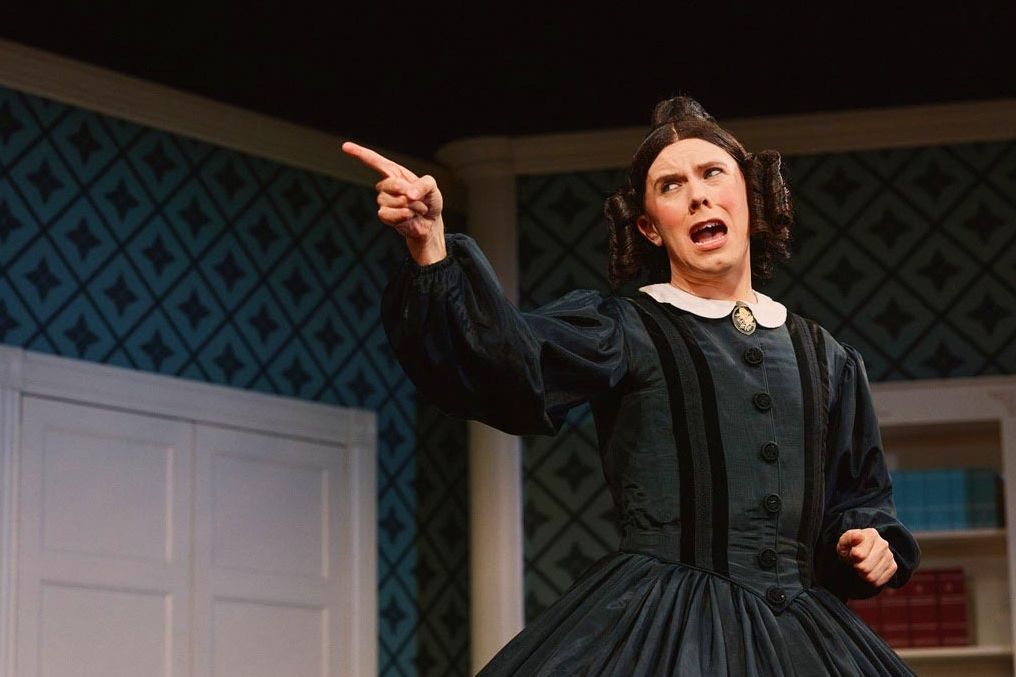La Vida Lorca

Image: Stephanie Davis
ON A RAINY WINTER afternoon, the Miracle Theatre Group’s basement studio bears scant resemblance to the sun-baked village in southern Spain where Bodas de Sangre, the play currently being rehearsed there, takes place. There’s no sun, for one thing: Despite the roar of an antiquated oil heater, the 10-member cast of Federico García Lorca’s music-and-dance-infused play (the title of which translates as Blood Wedding) dons hats and sweaters to keep warm. There is no semblance of whitewashed farmhouses or grape orchards in the distance, either—just a plain room, its walls painted in subdued pumpkin and blackberry hues. The décor is simple—a table, assorted chairs, a green piñata in the shape of a cactus—and strips of worn masking tape, blocking marks from rehearsals past, crisscross the scuffed wood floor.
But if you close your eyes, you can hear the staccato sounds of a wedding party heating up in an Andalusian village, circa 1931. The cast, members of the Pacific Northwest’s only Spanish-language acting ensemble, rehearse the crucial banquet scene: “¡Despierte la novia/la mañana de la boda!” (“Awaken the bride/On her wedding morn!”) they cry, their voices joined by a percussive storm of rattle, drum, guitar, handclapping and foot-stomping. Director Olga Sanchez, her brown hair drawn back in a ponytail, leaps from her perch on a piano bench to offer guidance—punctuating comments in Spanish (and occasionally in English) with fist striking palm.
Miracle Theatre Group has championed Hispanic-rooted performing arts in Portland since 1984, when Mexican-American husband-and-wife team José Eduardo González and Dañel Malán founded the nonprofit organization. (Today, González serves as Miracle’s executive director, and Malán leads Teatro Milagro, the company’s touring arm.) But only recently have Spanish-language plays like Bodas taken prominence in the company’s repertoire, which also includes English-language and bilingual productions. That’s due in large part to the Hispanic population explosion in Oregon: Since 2000, Hispanics have accounted for 92 percent of population growth in Multnomah County, bringing the number of Hispanic Oregonians to 366,375 as of 2005— almost 10 percent of the state’s total population.
This shift creates an interesting challenge for Miracle Theatre Group, that of how to make its programming accessible to English speakers. To ensure that all audience members can fully enjoy Lorca’s play, Sanchez, who moved here from Seattle in 2003 to join the company as its artistic director, has arranged for English supertitles to be projected on a curtain above the stage—just like at the opera.
Written in 1932, Bodas is the story of a bride who elopes with her former lover during her own wedding celebration. Guided by watchful spirits—the Moon and Death—and hotly pursued by the vengeful groom, the star-crossed lovers cannot escape an impending clash between the bride’s two earthly rivals. The play is the first of Lorca’s “rural tragedies” trilogy, a body of work that thrust him into the international spotlight before his execution at the onset of the Spanish Civil War. Unlike the English translation that Sanchez directed in 1999, this production will showcase the poetry and intensity of Lorca’s original script. “It’s gorgeous in Spanish,” Sanchez says.
Though at times surrealist in style, the play represents the gritty reality of agricultural life in Andalusia in the ’30s, where people clung to old customs and hopes of a good harvest. “When you follow the rules, things run smoothly and you can get ahead with the business of living in a harsh environment,” Sanchez says. “Tension happens when somebody says, ‘These rules don’t work for me. What do I do?’”
As always, audiences can look forward to the interludes of music, dance and song that made the play a natural for the 1981 film adaptation by Spanish director Carlos Saura. And to further keep the experience from turning into “readers’ theater” for English speakers, Sanchez has carefully pruned the supertitles. “[The translations] are sparer, to get the idea across without the audience feeling they have to keep their eyes glued [to the text] or they’re going to miss something," she explains.
After all, the essential stuff to live theater transcends mere words. That’s evident at the rehearsal, where, as the wedding scene continues, an enraptured crowd whisks the bride onto its shoulders. Her panicked eyes search the room for escape—and for her lover, Leonardo—as she contemplates a dilemma that, at least for the moment, requires no translation to comprehend.




